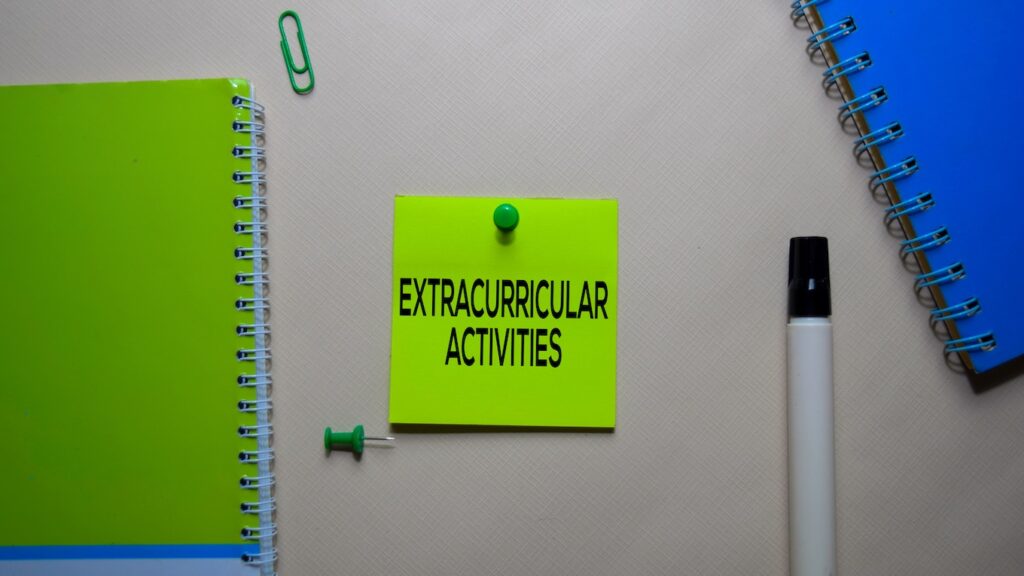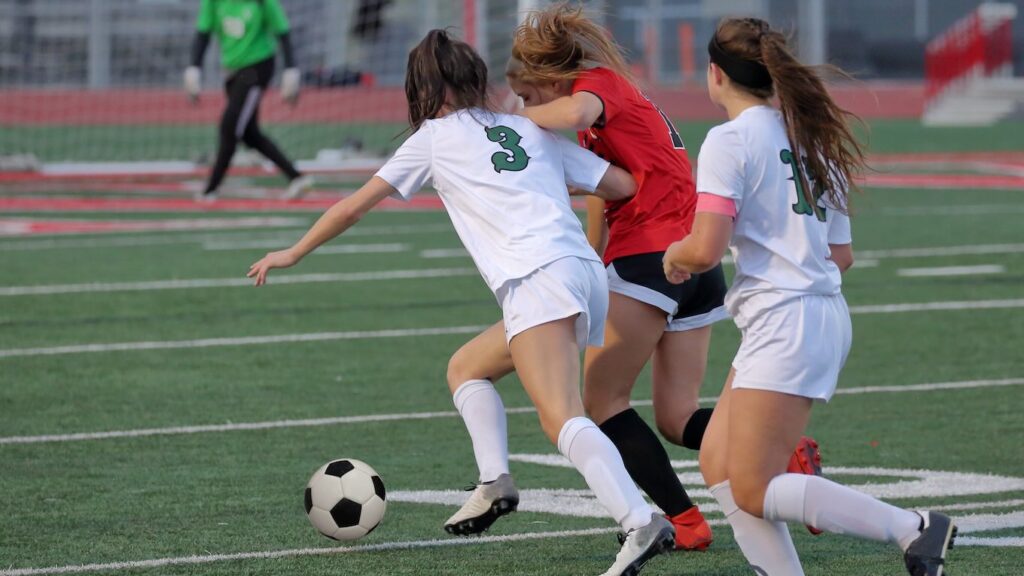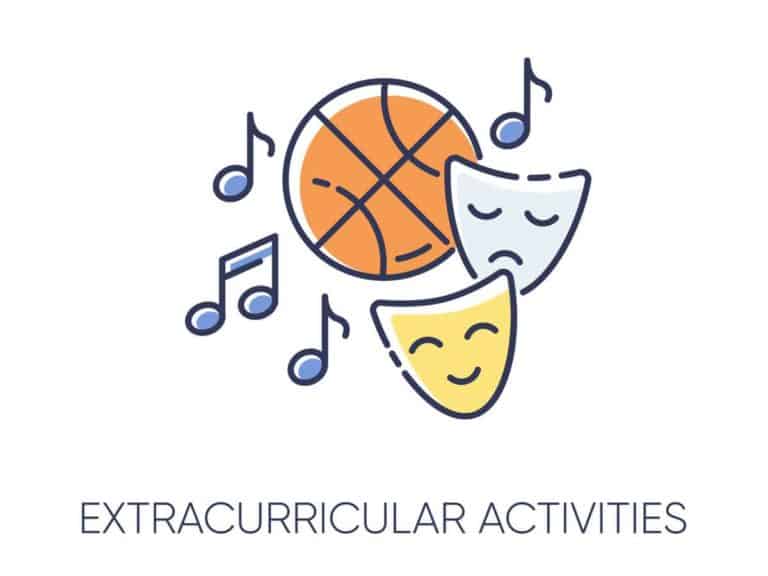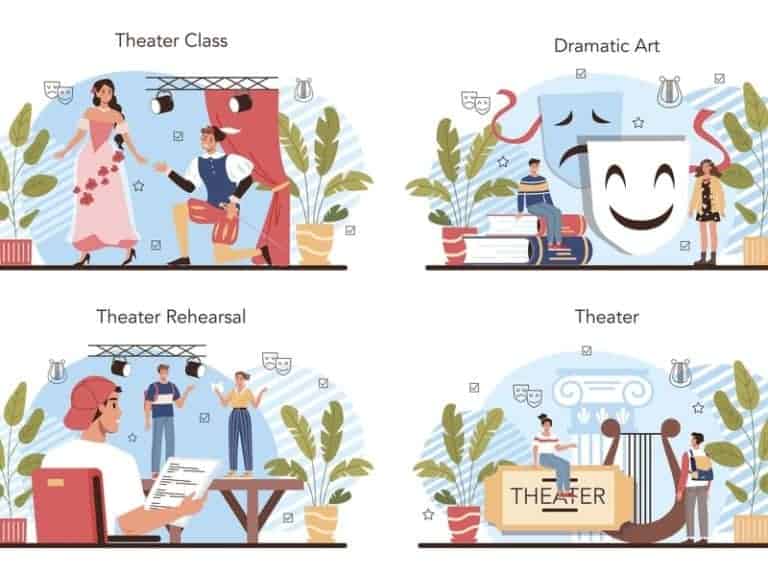High School Extracurriculars 101: How They Open College Doors
What you do inside the classroom can impact your chances of getting into a selective college because it demonstrates your academic capabilities and achievements.
However, the ones you do outside the classroom matter, too.
College admissions officers constantly look for well-rounded students who can contribute something unique, positive, and worthwhile to the campus community.
Because of this, extracurricular activities are vital college application components.
In its most basic sense, EAs are activities outside the typical academic curriculum.
It explains why they are also sometimes known as extra-academic activities.
However, this too simple definition of EA makes it difficult for many high schoolers to determine whether an activity they are pursuing or planning on partaking in can be considered an extracurricular.
They tend to mix up their hobbies with extracurriculars.
While it’s true that their hobbies can lead to extracurricular participation, not all hobbies have a place in their college applications and can help them get into their dream colleges, too.

Extracurriculars vs. Hobbies: What’s the Difference?
People pursue hobbies for leisure and personal satisfaction.
Whether playing video games, woodworking, or collecting comic books, your hobby leaves you happy and relieves some of your stress because you find delight and fulfillment in them.
Unfortunately, while hobbies happen outside the classroom, they are not necessarily extracurriculars.
It’s because EAs are often organized and structured, but can be fun as well.
Math club participation, for example, requires showing up at meetings at particular times and on specified days to engage in activities organized by the elected or appointed officers.
You can engage in your hobbies independently anytime you feel like doing so.
While you can do them with friends, you usually do most of your hobbies alone. After all, one of the primary reasons for being engrossed in them is to get preoccupied and enjoy some me-time.
And this brings us to another characteristic of EAs: it’s group participation.
Extracurricular engagement typically involves working with a group, which is why EAs help high school teens build better interpersonal skills like leadership, teamwork, and communication.
In a few, we will look into this particular EA aspect and its importance in college admissions.
Whether the extracurricular is about debating or building robots, it typically entails interacting with campus community members, particularly those with shared interests.
However, it can also involve reaching out to the community outside the campus.
High School EAs Come in All Shapes and Sizes
The number of extracurricular options for high schoolers can vary.
Available choices can depend on factors like the size of the campus enrollment-wise and the number of students who feel the need to introduce clubs and organizations to the student body by registering them.
No matter if there are less than a dozen or dozens of selections, EAs fall into broad categories.
Academic
Joining academic clubs demonstrates your passion and interest in particular subjects.
Regardless if math, science, or history is your favorite, joining an organization centering on it allows you to establish that the academic field is one of your strengths.
Some academic clubs are all about discussions on and applications of the subject.
But then some also foster a competitive spirit such as:
- Academic triathlon
- Chemistry olympiad
- Engineering fair
- Math league
- Science bowl
- Spelling bee
Sports and Recreation
Participating in an athletic club is not just about breaking a sweat and getting fit.
It also fosters many skills that not only can help your team get points and win but also allow you to prepare for college and your professional life beyond the campus.
Some of the valuable skills you develop from being a sports club member are:
- Accountability
- Communication
- Goal-setting
- Leadership
- Perseverance
- Resilience
- Sportsmanship
- Teamwork
Whether basketball or fencing, sports participation can teach you things the classroom can’t.
Performing Arts
What’s great about being a member of a performing arts club is that it allows you to pursue your hobby, which doesn’t usually count as an EA, and allow yourself and others to benefit from it.
Be it a comedy or theater club, it can make your passion even more meaningful.
Nothing can improve your self-confidence and artistic talent more than playing a musical instrument, singing, dancing, acting, reading poetry, or performing magic before an audience!
Some performing arts clubs compete, too, which promotes teamwork and collaboration.
Community Service
Extracurricular activities happen outside the classroom.
Some also happen outside the campus.
Community service or involvement is an opportunity to make a positive impact on society by demonstrating your compassion and empathy toward fellow citizens and commitment to help change lives.
Some common programs of civic engagement groups in high school include:
- Animal shelter
- Cleanup
- Community garden
- Food drive
- Recycling
- Student tutoring
- Watch group
Many other clubs and organizations exist, depending on the high school.
It’s not uncommon for some campuses to have EAs for military training, social activism, cultural activities, and religious devotion. Others have room for special interests such as role-playing, quilt-making, and entrepreneurship.
Student council, yearbook committee, and student publication are staples as well.

Extracurriculars College Admissions Officers Find Extraordinary
Not all high school extracurricular activities are the same.
Some may appeal more to certain types of teens — someone who loves swimming may prefer the water polo club over the movie club, while someone who’s into painting may like an art club better than the wrestling club.
The same applies to college admissions.
Meaning Means a Lot
Some extracurricular activities might catch the fancy of college admissions officers better than others.
Because of this, it pays to wisely choose your EAs as a high schooler, especially if your academic goal involves enrolling in a selective college or getting into a competitive undergraduate program.
It’s not enough that you have extracurricular participation.
You must have meaningful extracurricular participation!
Going for those that allow you to cultivate your strengths and, at the same time, pursue your interests is a fantastic idea because it enables college admissions officers to know your capabilities and what you can contribute to the campus.
You can show that an EA is meaningful to you by partaking in it for a long time.
While it’s never too late to join a club or organization in high school, finding one early in your secondary education career gives you plenty of time to fortify the skills it instills.
That’s why filling all ten Activity spaces on the Common App (or eight on the Coalition App) isn’t necessary.
Having two to three meaningful extracurriculars is usually more than enough, and having around four meaningful ones, according to consensus, is preferable when applying to an Ivy League or any other selective school.
So, choose EAs you find meaningful and can commit to.
Increasing College Admissions Chances Through EAs
A perfect GPA or test score alone won’t get you into a college with a holistic admissions process.
You must be able to prove you’re the one it’s looking for by being a well-rounded student with an overall strong application that displays an excellent balance of academic and non-academic achievements.
Certain extracurriculars may add more value to your college application.
Your EAs allow college admissions to know your interests and personality, thus allowing them to know you much better than your grades, class rank, and SAT or ACT composite score.
It also gives them a sense of whether or not you have something unique to contribute to the campus community or whether or not you will engage in campus activities at all.
Similarly, it lets them see you are interested in your intended program or major.
To increase your admissions chances, ensure that you put those that demonstrate the things below at the top of your college application’s list of extracurricular activities:
- Leadership. College admissions officers find it hard to turn down students who exhibit strong leadership skills, and that’s why being an officer at your club or starting a club is a big plus in the admissions process.
- Commitment. Engaging in an EA for an extended period shows dedication and consistency, speaking volumes about your ability to complete the academic program you are interested in.
- Community service. Civic engagement is a great way to show you have inspired change in your local community during high school and can thus make a difference at the college you wish to attend.
Disclaimer: The views and opinions expressed in this article are those of the authors and do not necessarily represent those of the College Reality Check.





